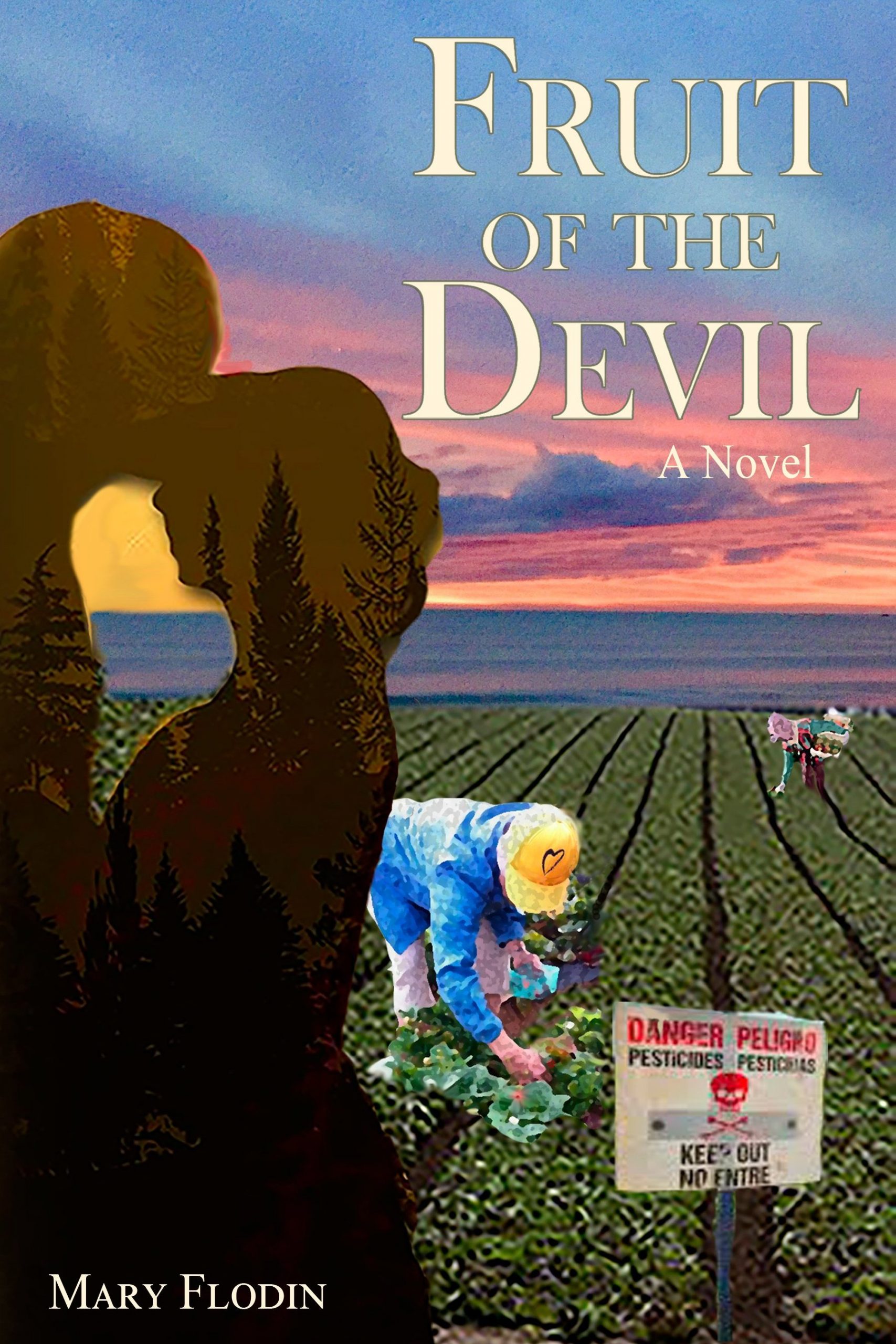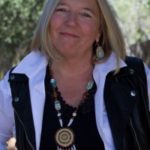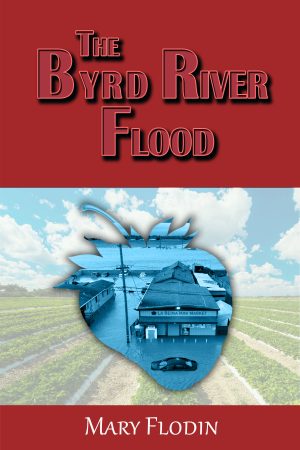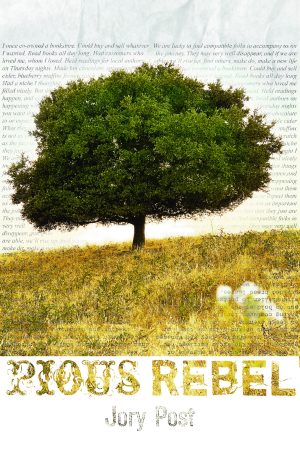Fruit of the Devil
Mary Flodin
Ms. Aurora Bourne would do anything to protect her students from harm … even if that means going up against the most powerful corporation on the planet.
While getting her fourth grade classroom ready for Fall, Aurora begins to feel sick, and it’s more than back-to-school blues. Outside her windows next to the playground, strawberry fields have just been fumigated and pesticides are drifting into the classrooms, causing serious health issues for children and adults.
When the teenage sister of a migrant student goes missing from the strawberry fields, it becomes clear that pesticide poisoning isn’t the only thing threatening the children’s safety, and Aurora begins to understand why farmworkers call strawberries Fruta del Diablo — the Fruit of the Devil.
Aurora starts asking questions and gets caught in a web of gangs, drugs, trafficking, and high-level corporate crime. When a Catholic priest comes to her aid, she falls in love with him, complicating her life further. She has no idea he’s actually an ancient nature god out of Pacific Coast indigenous legends.
Trade Paperback Editions
Hardcover Editions
Digital Editions
Book Details
| Available Editions |
|---|







Kirkus Reviews –
“An environmental thriller in which a California teacher travels to a parallel world … plenty of action to keep things lively … consistently entertaining … a righteous quest.”
Kirkus Reviews
Dr. Ann López –
“This is definitely a story that needs to be told; a clear and poignant example of the economic age that we live in, in which corporate profits are more important than human and environmental health and well-being.”
Dr. Ann López, Director, Center for Farmworker Families
Vinnie Hansen –
“In a saga filled with elegant prose, Mary Flodin takes on the existential crisis of our time — global climate change. Set against the backdrop of a lovingly-rendered California Central Coast, Fruit of the Devil weaves elements of mystery, romance and fantasy.”
Vinnie Hansen, author of the Carol Sabala Mystery Series
Nancy Lynn Jarvis –
“Using mesmerizing descriptive language in an eco-thriller rich with scientific rigor and local history, Mary Flodin comments on corporate greed, the plight of the environment, and the human condition. Mystical and romantic. A breathtaking read that will restore your hope.”
Nancy Lynn Jarvis, author of the Regan McHenry Real Estate Mysteries
Roberta Jaffe –
“An organic school garden — oasis for both teachers and students, yet located beside commercial strawberry fields using toxic pesticides — exemplifies the complexity and contradictions at play in Fruit of the Devil. Author Mary Flodin weaves an important tale about committed teachers doing their best to bring environmental justice to their community, based on her own life experiences. A tribute to teachers who teach with their whole hearts.”
Roberta Jaffe, Founder and Emeritus Director, Life Lab School Garden Project
Mark Lipson –
“With a fine eye for her characters and the details of place, Mary Flodin deconstructs the pernicious evils of our toxic food system. The spirit of resistance and renewal illuminate the pages of Fruit of the Devil, showing us a better future is possible.”
Mark Lipson, Molino Creek Farming Collective, U.S. Organic Agriculture Policy Advisor (2010-2014)
Anne Marie Sayers –
“Some people think that we no longer exist — that our people, the California Costanoan Ohlone — were swept away through colonization and genocide. But we are still here, in the Land of Our Ancestors. We are very proud that Indian Canyon is part of Mary Flodin’s novel, Fruit of the Devil. The history of our people goes back to the beginning of time, and the world needs our healing stories now, more than ever. Noso’n.”
Anne Marie Sayers, Beloved Elder – Tribal Chairperson, Ohlone Indian Canyon
Barry Burt –
“For those of us who live on the Central California Coast, Fruit of the Devil ticks all the boxes of relevant issues facing our community. Mary Flodin artfully interweaves the plight of our native runs of salmon and steelhead with passion and mysticism. A must read.”
Barry Burt, Founder and Emeritus Educational Director, Monterey Bay Salmon and Trout Project